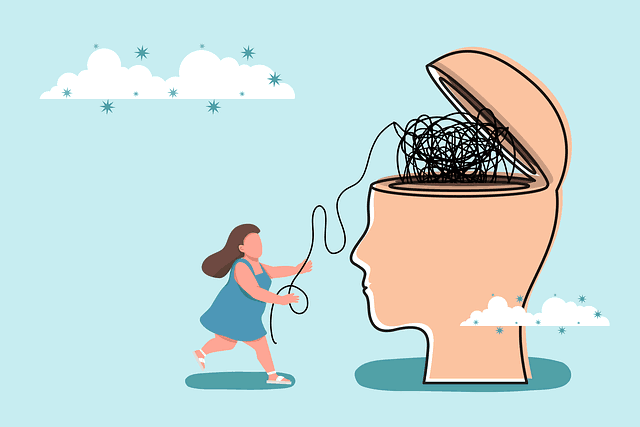Introduction:
The period of examinations can be a challenging time for children, testing not only their academic knowledge but also their mental and emotional resilience. This comprehensive guide aims to provide parents, educators, and caregivers with a wealth of strategies—20 tips, to be precise—to support a child’s mental health during exams. From fostering a positive mindset to creating a conducive study environment, each tip contributes to a holistic approach that nurtures a child’s well-being during this critical time.
I. Understanding Exam-Related Stress and Anxiety(Child’s Mental Health)
Before delving into specific tips, this section sets the stage by exploring the nature of exam-related stress and anxiety. It delves into the common triggers, signs, and consequences of heightened stress levels during exams, emphasizing the importance of proactive mental health support.
II. Promoting a Positive Mindset: The Foundation of Resilience
A positive mindset is crucial for navigating the challenges of exams. This part of the guide discusses strategies for promoting optimism, resilience, and a growth mindset. It explores the impact of positive thinking on academic performance and overall well-being.
III. Effective Time Management: Balancing Study and Leisure
Time management is a key skill for exam preparation, but it should be balanced with leisure and relaxation. This section provides practical tips for creating a study schedule, incorporating breaks, and ensuring a healthy balance between academic commitments and downtime.
IV. Creating a Supportive Study Environment: The Importance of Space
The study environment significantly influences a child’s focus and productivity. This part of the guide explores tips for creating a conducive study space, including considerations for lighting, noise level, and ergonomic setup.
V. Encouraging Open Communication: Fostering Emotional Expression
Open communication is a cornerstone of good mental health. This section delves into the importance of encouraging children to express their feelings and concerns about exams. It explores effective communication strategies that promote emotional well-being.
VI. Setting Realistic Expectations: Embracing a Growth Mindset
Setting realistic expectations is essential for alleviating pressure during exams. This part of the guide discusses the benefits of adopting a growth mindset, emphasizing progress over perfection and learning from setbacks.
VII. Healthy Lifestyle Habits: Nourishing the Body and Mind
A healthy lifestyle is integral to mental well-being. This section explores the impact of nutrition, exercise, and adequate sleep on a child’s cognitive function and emotional resilience. It provides practical tips for incorporating healthy habits into a child’s routine.
VIII. Care and Unwinding Strategies: Developing Serenity
Care and unwinding strategies can be integral assets for overseeing pressure. This piece of the aide presents practices like profound breathing, contemplation, and perception, investigating their advantages in advancing a quiet and centered mind.
IX. Encouraging Regular Breaks: Balancing Productivity and Rest
Taking regular breaks is not just permissible but essential for optimal learning. This section discusses the importance of breaks in maintaining focus, preventing burnout, and rejuvenating the mind for effective study sessions.
X. Building a Strong Support System: Collaborative Care
A strong support system is crucial during exam periods. This part of the guide explores the roles of parents, teachers, and friends in providing emotional support, encouragement, and assistance with academic challenges.
XI. Recognizing Signs of Burnout: Proactive Intervention
Burnout is a real risk during intense study periods. This section educates caregivers on recognizing signs of burnout, such as fatigue, irritability, and changes in behavior. It emphasizes the importance of proactive intervention to prevent prolonged stress.
XII. Encouraging Extracurricular Activities: Balancing Academics and Hobbies

Extracurricular activities contribute to a well-rounded education. This part of the guide discusses the benefits of maintaining hobbies and interests during exam preparation, highlighting their positive impact on mental health.
XIII. Implementing Effective Study Techniques: Smart Learning Strategies
Effective study techniques can enhance productivity and reduce stress. This section explores strategies such as active recall, spaced repetition, and concept mapping, providing practical advice on optimizing study sessions.
XIV. Teaching Coping Mechanisms: Equipping Children for Challenges
Coping mechanisms are essential life skills. This part of the guide discusses the importance of teaching children healthy coping strategies, such as problem-solving, positive self-talk, and seeking support when needed.
XV. Fostering a Growth Mindset: Embracing Challenges as Opportunities
A growth mindset is a powerful tool for navigating challenges. This section explores how fostering a growth mindset can transform a child’s perspective on exams, encouraging them to view challenges as opportunities for learning and growth.
XVI. Celebrating Achievements: Recognizing Efforts, Big and Small
Perceiving and commending accomplishments, regardless of how little, is indispensable for inspiration and confidence. This piece of the aide investigates ways of recognizing a kid’s endeavors, encouraging a feeling of achievement and supporting good ways of behaving.
XVII. Promoting Social Connections: Balancing Study and Social Life
Maintaining social connections is essential for a child’s mental health. This section discusses the importance of balancing study commitments with social activities, ensuring a well-rounded approach to life during exams.
XVIII. Encouraging Independence: Empowering Children in Their Studies
Empowering children with a sense of independence in their studies builds confidence and resilience. This part of the guide provides tips for fostering self-reliance and instilling a sense of responsibility for academic tasks.
XIX. Seeking Professional Help: Recognizing When It’s Necessary
Sometimes, professional help is needed to address mental health challenges. This section discusses the signs that may indicate the need for professional intervention and emphasizes the importance of seeking help when necessary.
XX. Post-Exam Reflection and Celebration: A Time for Evaluation
After exams, reflection and celebration are crucial for mental well-being. This part of the guide explores the benefits of reflecting on the exam experience, learning from both successes and challenges, and celebrating the completion of a challenging period.
Conclusion: Empowering Children for Lifelong Well-Being
In conclusion, this comprehensive guide provides a wealth of strategies—20 tips—to support a child’s mental health during exams. It underscores the importance of a holistic approach that encompasses not only academic preparation but also mental, emotional, and physical well-being. By fostering resilience, instilling healthy habits, and providing a supportive environment, caregivers can



Average Rating